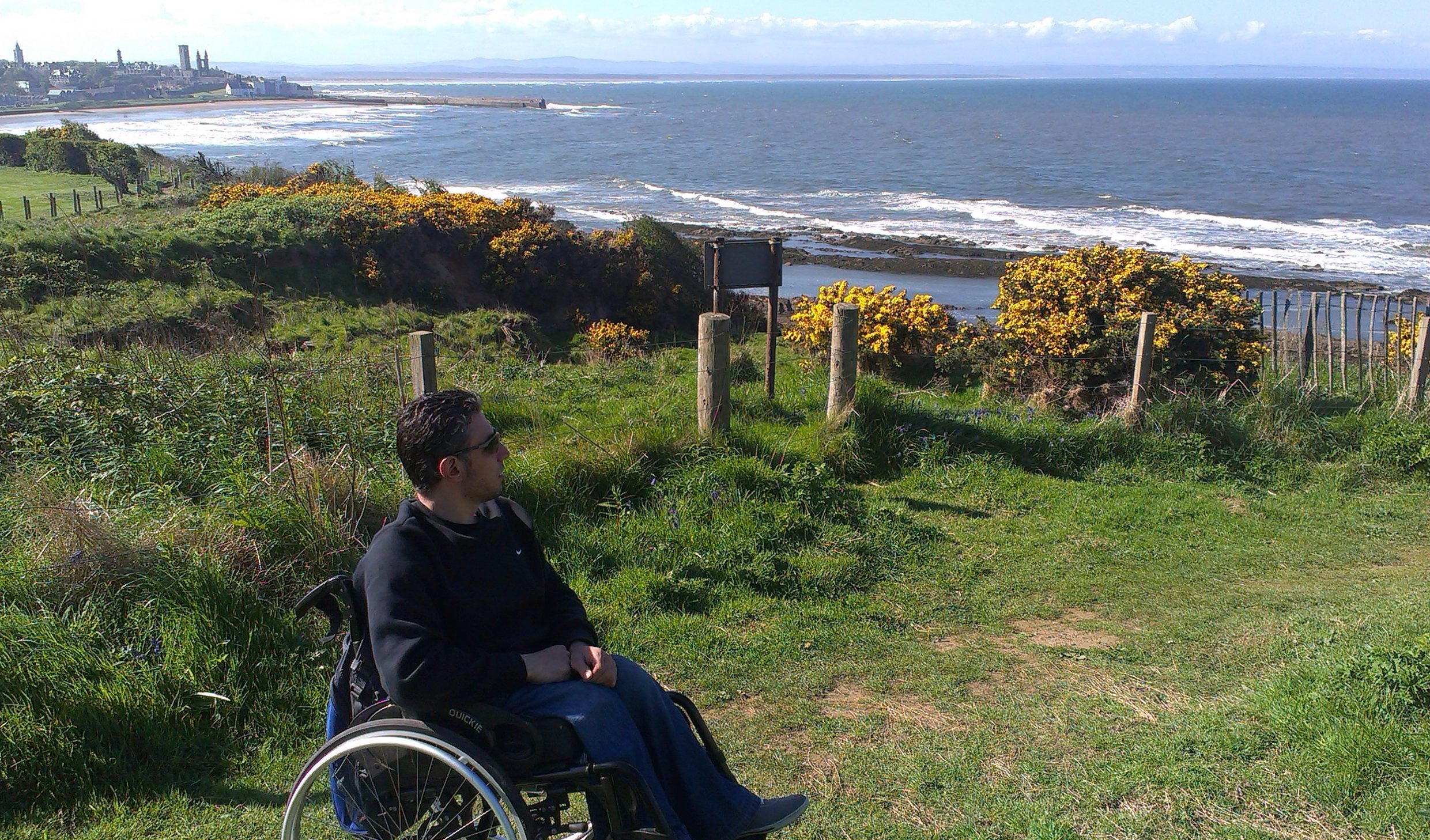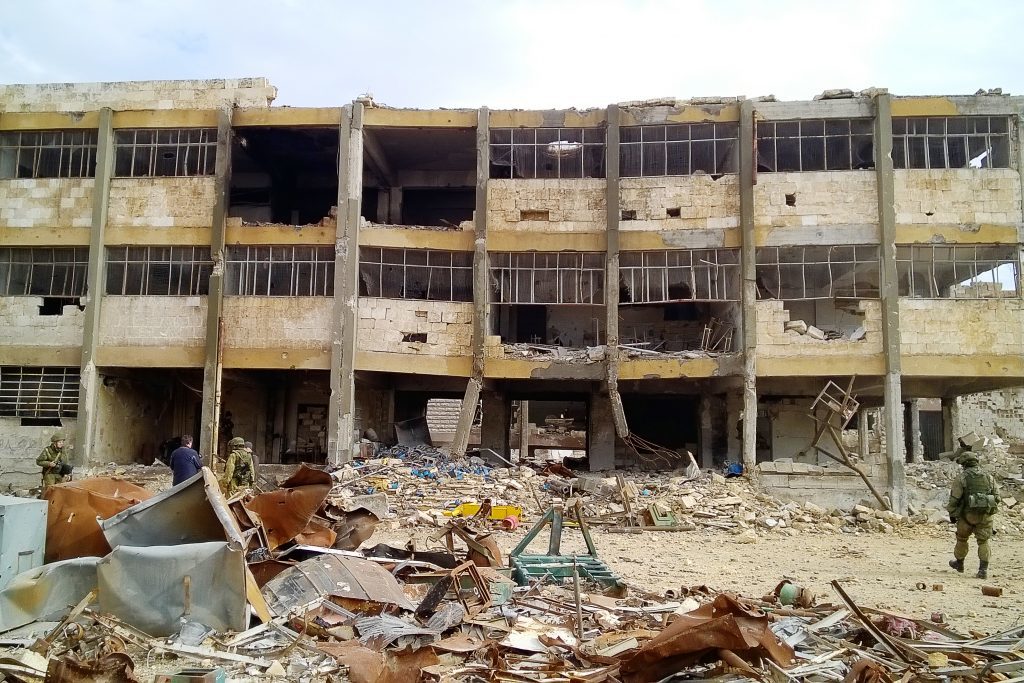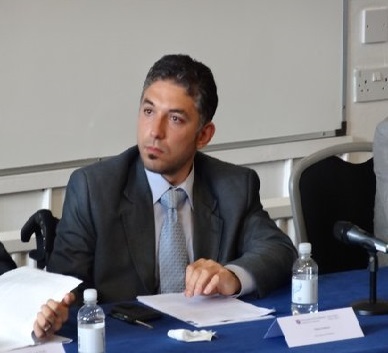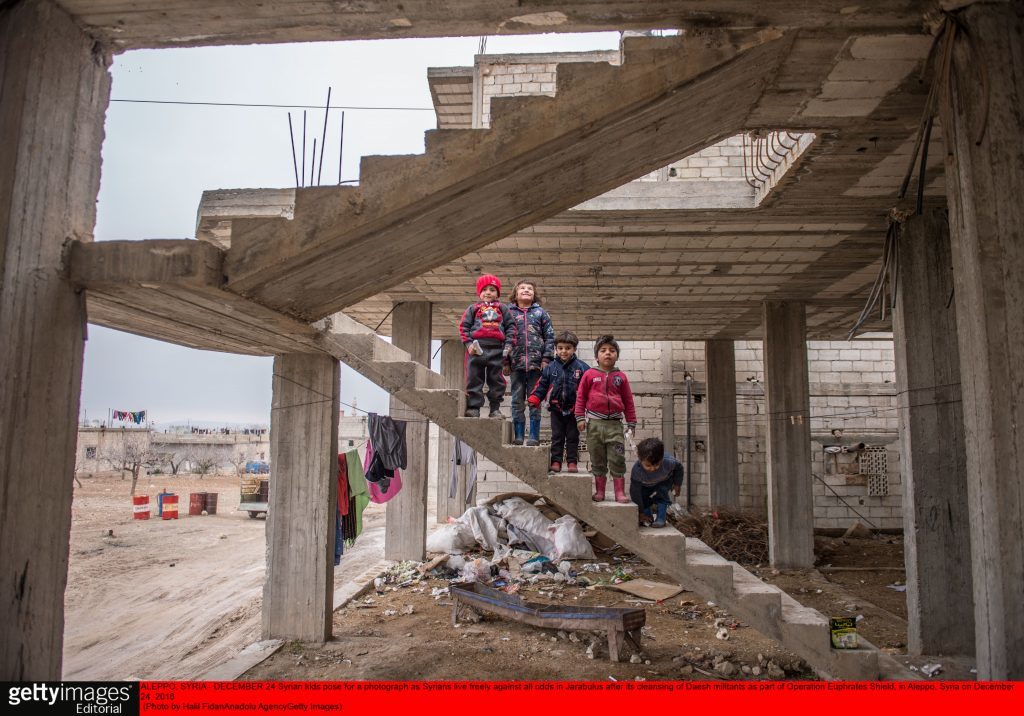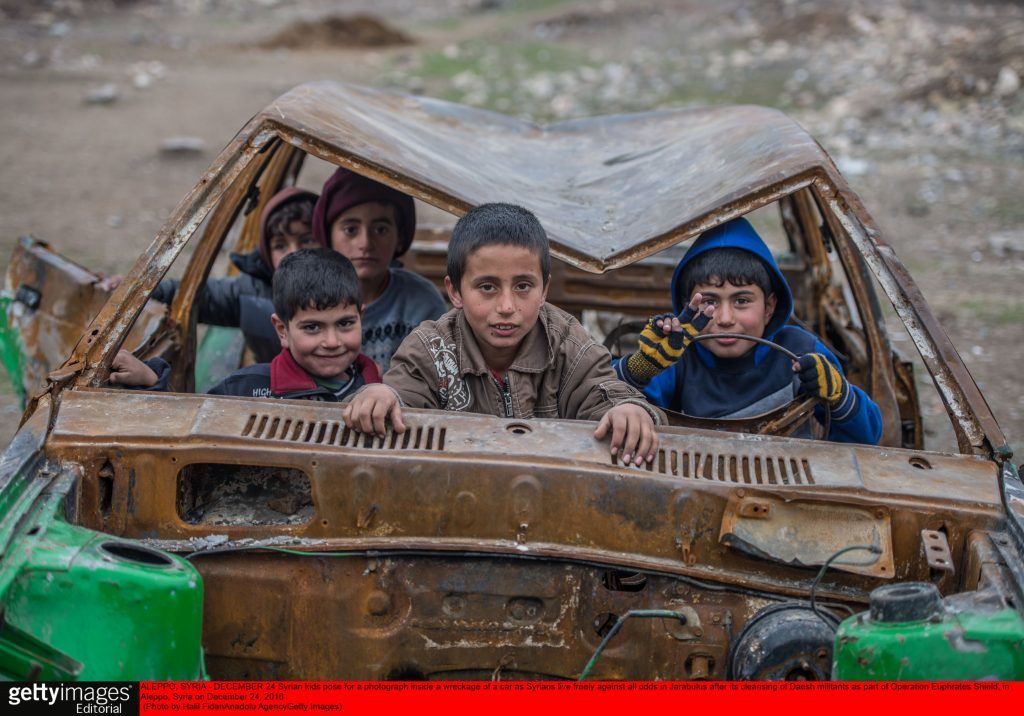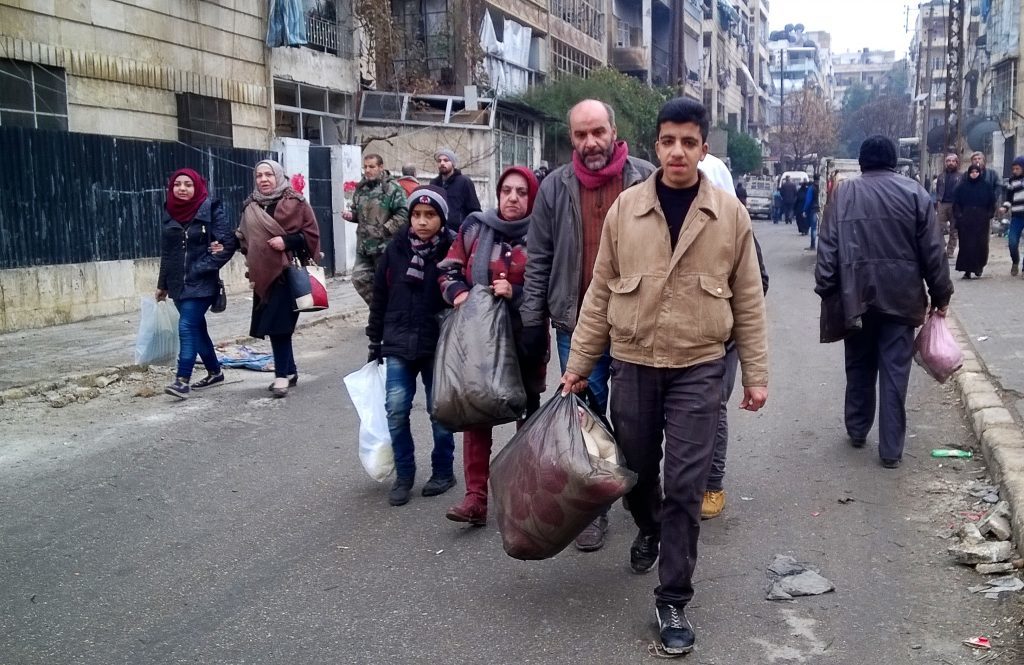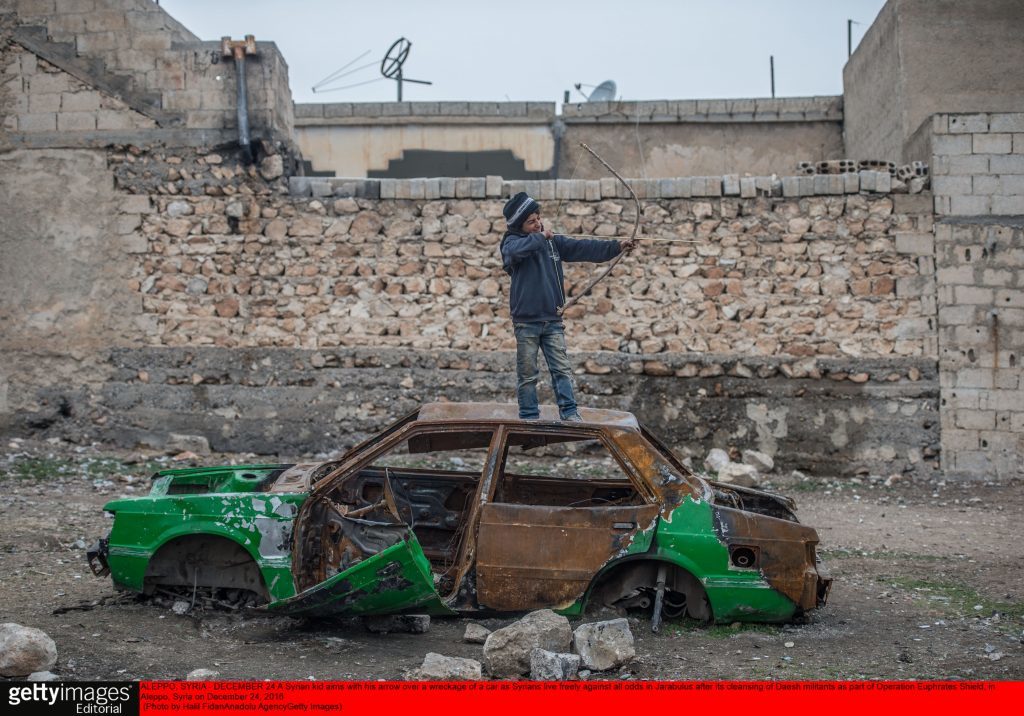Following the fall of Aleppo, Michael Alexander speaks to a St Andrews University-based Syrian student who fears the conflict in his country is unlikely to end soon.
The evacuation of civilians and fighters from the last rebel-held part of Aleppo concluded just before Christmas, putting all of Syria’s industrial capital back in the hands of President Bashar al-Assad’s forces for the first time since 2012.
Months of shelling and airstrikes that killed hundreds of people and reduced entire neighbourhoods to rubble finally routed the rebels and pushed the area’s inhabitants to leave under an agreement brokered by Russia, Turkey and Iran.
Before the last buses left on December 22, the Red Cross said that 34,000 people had left the city, including 4,000 fighters who had left in their own vehicles the previous night.
But it is “far-fetched” to suggest that the fall of Aleppo will lead to the end of the Syrian conflict anytime soon, according to exiled Syrian Haian Dhukan, 35, a PhD student at St Andrews University.
“The fall of Aleppo is a strong blow to the Syrian opposition,” said Haian in an interview with The Courier.
“It will definitely strengthen Assad’s position in the country in any future negotiations.
“Is this going to end the conflict any time soon? Definitely not. The opposition still holds large areas in the north and the south of country and these groups are supported logistically and militarily by countries like Turkey, Jordan and Saudi Arabia.
“On the other hand, ISIS has proved in the takeover of Palmyra and its advance towards the west of the country that the group still has resilience and strength in waging battles against its adversaries.
“There is a potential of regime Kurdish confrontation in the future if the regime tries to gain control over Kurdish autonomous areas. So, the prospects of any near peace in Syria seem far-fetched.”
Haian, who describes the opposing Syrian forces as “two evils”, has a particular interest in ISIS’ recent re-take of the ancient historical city of Palmyra because it’s here that he grew up and had first-hand experience of President Bashar al-Assad’s regime which, he says, suppressed freedom of speech and bred resentment through the persistence of economic poverty.
When widespread discontent at similar economic hardship, autocratic rule and corruption toppled Tunisia’s President Zine al-Abidine Ben Ali in January 2011, Haian celebrated the dawn of the pro-democracy ‘Arab Spring’ and quietly welcomed the rebellion which began in the rural lands around his hometown.
But since he left Syria in 2012 to study for his PhD at St Andrews University, millions of Haian’s own peace loving country-folk have found themselves caught between Assad’s rebel-crushing regime and the rise of ISIS which has brought in its own level of brutality.
It was the ISIS take-over of Palmyra last year which resulted in his own family being forced out – eventually reaching southern Turkey with a caravan of refugees.
The city was pummeled by government barrel bombs which indiscriminately targeted schools, bakeries and markets. But after Assad’s forces retook it, ISIS recently took control again.
“ISIS’ takeover of Palmyra again came as a big surprise to me,” added Haian, a wheelchair user since childhood due to a physical disability.
“I thought that the Russian military presence in Palmyra will not allow ISIS from capturing the historical town again.
“For the international community, this may come as a shock because they would not want the world heritage site to be under threat from the terrorist group.
“For many people of Palmyra who were initially displaced from the city as a result of the fighting between Assad’s forces and ISIS, the takeover of the city by ISIS again was not a big deal.
“The majority of the people of the town left as a result of indiscriminate bombardment by Assad’s forces that did not distinguish between civilians and ISIS fighters.
“Their houses were destroyed and all the public facilities were badly affected and out of service.
“Assad’s militias, that were supposedly to have liberated Palmyra, looted the houses of civilians and burnt many of them.
“They arrested many civilians from the town and tortured them.
“Therefore, the largest number of the population of the town fled away and camped in the desert close to the Jordanian borders away from the bombing of Assad’s forces and the oppression of ISIS.
“These live in al rukban refugee camp in the most miserable conditions ever.”
Haian said he had some concerns about what a forthcoming Donald Trump presidency in the USA could mean for Syria.
He said: “The situation of Syria after Trump’s winning of the elections still seems vague.
“The President elect announced at many occasions that his priorities in Syria are fighting ISIS and not Assad.
“The president elect does not seem to care about human rights violations that the Assad’s regime committed.
“He seems to be a realist who cares mainly about the interests of the US and does not pay attention to the abuses of human rights committed by the Syrian regime.
“This will most probably weaken the Syrian opposition as it means that he will probably stop funding the opposition organisations and will focus his efforts on combating terrorism.
“At the same time, he announced at many occasions that he wants to weaken Iran influence and power and this cannot happen without curbing its involvement in Syria. How will his policies play out? It is something to be yet seen.”
